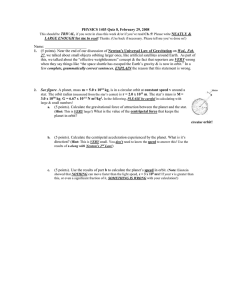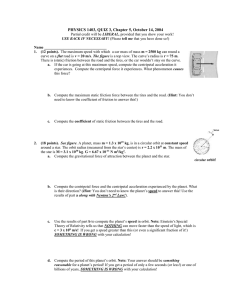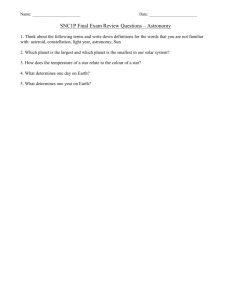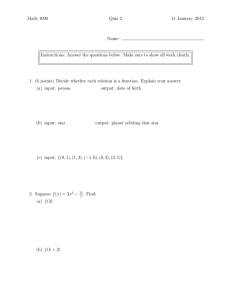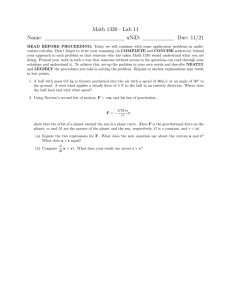PHYSICS 1403 QUIZ 3, Chapter 5, March 6, 2006 Name: ______________________
advertisement
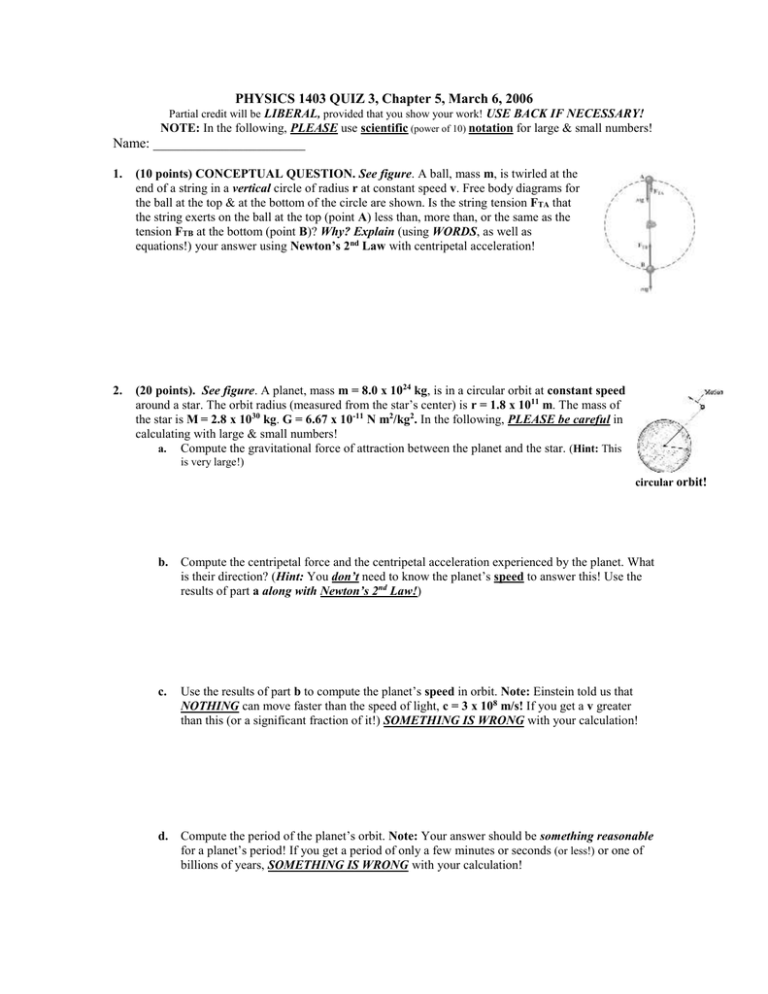
PHYSICS 1403 QUIZ 3, Chapter 5, March 6, 2006 Partial credit will be LIBERAL, provided that you show your work! USE BACK IF NECESSARY! NOTE: In the following, PLEASE use scientific (power of 10) notation for large & small numbers! Name: ______________________ 1. (10 points) CONCEPTUAL QUESTION. See figure. A ball, mass m, is twirled at the end of a string in a vertical circle of radius r at constant speed v. Free body diagrams for the ball at the top & at the bottom of the circle are shown. Is the string tension FTA that the string exerts on the ball at the top (point A) less than, more than, or the same as the tension FTB at the bottom (point B)? Why? Explain (using WORDS, as well as equations!) your answer using Newton’s 2nd Law with centripetal acceleration! 2. (20 points). See figure. A planet, mass m = 8.0 x 1024 kg, is in a circular orbit at constant speed around a star. The orbit radius (measured from the star’s center) is r = 1.8 x 1011 m. The mass of the star is M = 2.8 x 1030 kg. G = 6.67 x 10-11 N m2/kg2. In the following, PLEASE be careful in calculating with large & small numbers! a. Compute the gravitational force of attraction between the planet and the star. (Hint: This is very large!) circular orbit! b. Compute the centripetal force and the centripetal acceleration experienced by the planet. What is their direction? (Hint: You don’t need to know the planet’s speed to answer this! Use the results of part a along with Newton’s 2nd Law!) c. Use the results of part b to compute the planet’s speed in orbit. Note: Einstein told us that NOTHING can move faster than the speed of light, c = 3 x 108 m/s! If you get a v greater than this (or a significant fraction of it!) SOMETHING IS WRONG with your calculation! d. Compute the period of the planet’s orbit. Note: Your answer should be something reasonable for a planet’s period! If you get a period of only a few minutes or seconds (or less!) or one of billions of years, SOMETHING IS WRONG with your calculation!
